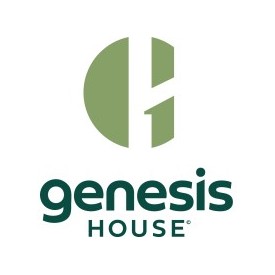The journey of recovery from addiction requires quite a bit of thoughtful planning and the ability to respond effectively when challenges to that recovery arise.
For many who are on the path to recovery, knowing the difference between proactive strategies and reactive responses can be key to maintaining that long-term sobriety they long for.
Two essential components of a complete recovery approach are relapse prevention planning (the ability to anticipate and plan for potential triggers or setbacks) and crisis intervention (knowing the steps necessary to stay on track when crises occur).
At Genesis House, we believe being informed about both approaches can empower you or a loved one to feel better prepared and supported throughout the recovery. Let’s look at both and how you can take steps to put a plan in place to manage all parts of recovery.
What Is a Relapse Prevention Plan?
Think of a relapse prevention plan as a proactive strategy that is personalized to your recovery aftercare. Typically developed during or after addiction treatment, this relapse prevention plan acts as a roadmap to help you move through different challenges that may pop up during recovery.
The goal? It helps you know what to watch for and how to react to issues before they become overwhelming.
What’s in a relapse prevention plan?
- Trigger identification: Identifying the key people, places, emotions, and situations that might increase the risk of substance use
- Warning sign recognition: Knowing the warning signs that may manifest through emotional and behavioral changes that could signal moments of vulnerability
- Coping strategies: A list of healthy and effective alternatives to using substances when cravings arise
- Support resources: The names and contact information for individuals, professionals, and organizations who can step in and help you at any time
- Daily wellness practices: A set of habits and activities that help support your base-level physical and mental health (such as exercise, nutrition, and sleep routines)
We know that relapse prevention planning is crucial to an effective long-term recovery. That’s why our team at Genesis House works personally with each client and their loved ones to help develop a custom plan that reflects their own potential needs and is suited to their unique strengths.
What Is Crisis Intervention in Addiction Recovery?
While a replace prevention plan focuses primarily on the consistent actions required to help prevent relapse, what happens when an individual finds themselves stepping past the threshold where they can no longer control their cravings?
Studies show that 40-60% of those recovering from addiction experience relapse at some point in the journey. Crisis intervention addresses those immediate, high-risk situations that demand a rapid and effective response. Within addiction recovery, crisis intervention is necessary when:
- An individual has experienced a relapse
- They may be at imminent risk of harm to themselves or others
- A person is experiencing intense emotional distress or a psychological crisis
- The severity of withdrawal or overdose symptoms requires immediate medical stabilization
What’s Included in Crisis Intervention?
While each type of crisis is unique, a full crisis intervention plan will include a range of ways to deal with potential issues. Different levels of response in crisis intervention may include:
- De-escalation techniques that aim to reduce immediate distress
- Emergency medical care or psychiatric evaluation
- The temporary removal of the individual from triggering environments
- Re-entry into treatment or a higher level of care
- Strategic coordination between family members, healthcare providers, and – when necessary – law enforcement
The goal of crisis intervention is the immediate assurance of safety and stability for those involved. Once stability is reached, steps can be taken to connect them with the right resources to address the immediate situation and underlying issues.
What are the Key Differences Between Relapse Prevention and Crisis Intervention?
Those who are going through addiction recovery will often have both a relapse prevention plan and a crisis intervention strategy. Knowing how they differ can help to guide those who are helping a loved one in recovery know the best next step to take at any given moment.
| Relapse Prevention | Crisis Intervention | |
| Timing | Proactive: occurs before potential problems | Reactive: responds to emergencies after they happen |
| Purpose | Maintain sobriety and prevent relapse | Manage relapse or crisis and minimize harm |
| Duration | An ongoing, continuous process | Short-term, immediate response |
| Methods | Education, therapy, skill-building, support networks | De-escalation, stabilization, emergency services |
| Emotional Climate | Calm, reflective, collaborative | Often high-pressure, urgent, emotionally charged |
| Participants | Individual, therapist, support group | It may involve multiple agencies, emergency services, family members |
When and Why Each Approach Matters
Within a more comprehensive recovery process, individuals and their loved ones will often see that these two approaches aren’t one-or-the-other options.
Instead, they both play a role in making sure that the individual takes the proper steps to prevent a crisis from occurring – and knows what to do when the crisis strikes. For instance, relapse prevention could include cognitive behavioral therapy sessions to help reduce instances of risk, and crisis intervention comes along when even the best treatments aren’t enough.
At Genesis House, we recognize that recovery isn’t always linear. Despite the best prevention efforts, crises can still occur. Having both approaches available ensures that individuals receive the right support at the right time.
How Genesis House Supports Both Approaches
We’re proud to offer a rehabilitation and recovery methodology that sees individuals as whole people who deserve to have the tools to handle any situation that may arise in addiction recovery.
This means offering relapse prevention resources and training that build healthy lifestyle habits and crisis intervention availability at any time.
Personalized Relapse Prevention Programs
For relapse prevention, our team works to create individualized assessments that identify personal triggers and risk factors, as well as therapy and workshops that aim to help individuals cope with them effectively.
We also offer family therapy to equip everyone in the individual’s family, as well as aftercare that can grow and adapt as the recovery process continues.
Crisis Intervention, 24/7
Our crisis intervention ensures that no alumni of Genesis House is left without a place to turn to in their most difficult moments. Our 24/7 support is available for those who may be facing high-risk situations, and we offer an on-road to treatment should it be necessary.
Our compassionate, non-judgemental approach opens the door to help when it’s needed most.
We know that seeking help – whether it’s adding steps to an existing plan or handling an acute crisis – requires courage and compassion. Our team is here to help meet clients wherever they are in their recovery journey, providing the best level of support at the just the right time.
Prevention and Intervention Go Hand In Hand. Genesis House Is Here to Help.
Recovery from addiction is rarely a straightforward path. It involves high mountaintop moments of pride and low valleys where you often can’t see the way forward. Having a comprehensive strategy for prevention and crisis management can help you make sure you’re ready for anything that may occur in your recovery.
Don’t think of relapse prevention as preparing for an eventual failure. Instead, think of it as laying the bricks of a strong foundation – and with each brick laid, you create a firm base on which to grow and thrive.
Whether you want to develop a stronger relapse prevention plan or need support during a crisis, Genesis House is here to help. Our team knows the complex nature of addiction recovery, and we’re here to provide targeted and personalized help at every step of the process.
We invite you to learn more about our treatment programs, aftercare services, and crisis support options. Your path to recovery is unique, and we’re committed to supporting you every step of the way.
Contact Genesis House today for a confidential conversation about how we can help you or your loved one build a sustainable recovery plan or respond effectively to a crisis situation.
Research:
- https://www.frontiersin.org/articles/10.3389/fpsyt.2022.937527/full
- https://www.thelancet.com/journals/lanpsy/article/PIIS2215-0366(21)00243-1/fulltext
- https://soar.usa.edu/cgi/viewcontent.cgi?article=1053&context=scholprojects
- https://www.va.gov/WHOLEHEALTHLIBRARY/tools/reducing-relapse-risk.asp
- https://www.ncbi.nlm.nih.gov/books/NBK551500/
- https://pmc.ncbi.nlm.nih.gov/articles/PMC5844157/
- https://www.hazeldenbettyford.org/articles/relapse-risks-stats-and-warning-signs






